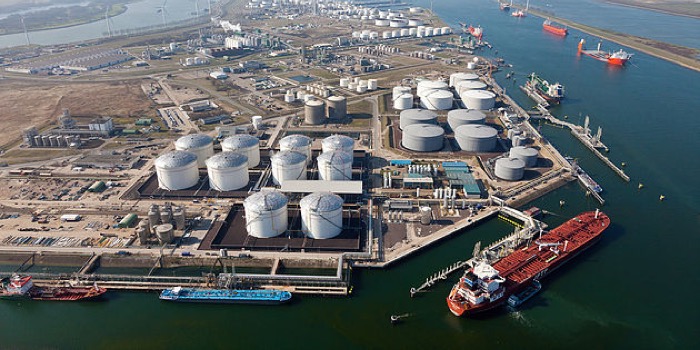The Audit Office has denied claims it was to blame for delays in constructing an LNG terminal, arguing its recent intervention was to stop Cyprus from being ‘blackmailed’ by the Chinese-led contractors.
In a written statement on Sunday, the office noted it had warned the government of “flawed” procedures in the €300 mln contract for constructing an LNG terminal in Vasiliko.
The tender was given to a consortium led by China Petroleum Pipeline Engineering (CPP).
The Audit Office said it could not be a bystander to the Republic’s interests being damaged and would not allow “blackmail attempted by powerful financial and other interests”.
This came after reports the Chinese consortium demanded an additional €25 mln or they would be walking out on the deal — it cited an increase in the cost of raw materials.
Politis daily claimed: “Either we pay €25 mln to the Chinese, as compensation for the increase in building materials, for a project with €1.5 bln benefits, or we are back to square one”.
The audit service perceives the demand as extortion, noting the contract foresees that if a difference should arise, the matter is subject to arbitration, and the consortium has no right to back out.
“Abandonment of the project, in addition to the financial claims of the Republic, automatically entails that the consortium would be blocked at a European level.
“In no case, can the Audit Office agree to the payment of any amount without justification, with the only argument that, if the amount is not given, the contractor will leave the project, and there will be chaos.
“In our opinion, no state can be blackmailed, nor can it appear to be acting under threat,” said the Audit Office.
It said if the consortium backs out, it is liable for multi-million compensation.
“Sixteen months since the start of the project was launched, which has a total duration of 24 months, it is still in the study stage, and not the slightest bit of work has been carried out on sight.”
Reports say that the government could also request tens of millions in compensation for the delay already recorded in the project.
Nat gas delay
However, the government appears ready to concede to the €25 mln request, fearing further delays in introducing natural gas into the island’s energy production mix.
The Audit office argues it warned the government of irregularities concerning the procedure.
“There was essentially no competition with the terms leading to a single bidder.
“The supposedly successful consortium, which was also the only ‘valid’ bidder, in practice did not have the set minimum score for its technical ability.
“However, its bid was found to be satisfactory, following a flawed mathematical procedure, rounding up the numbers.”
It believes the consortium should have been excluded as one of its constituents had a condemning court decision, which was not spotted by authorities.
“When we had pointed this out, Cyprus’ Natural Gas Public Company (DEFA), ruled that it could allocate the contract to the remaining constituents of the consortium.”
There are also doubts over the credibility of a company that the consortium had nominated as the Provider of Expertise/Experience in the field of Operation and Maintenance of the infrastructure of the LNG terminal.
It is argued that the company could have presented projects from its portfolio, which may not be its own.
“Despite the above, the government decided to proceed, and on 13 December 2019, DEFA signed the contract with the consortium.”
CPP, building the €300 mln Vassiliko LNG terminal, pledged in November to bring natural gas to Cyprus in June 2023 after some delays in the schedule due to COVID-19.
It said the terminal was to take longer to complete due to the pandemic as the original timeframe was the end of 2022.
Cyprus intends to import approximately 0.5 bcm of LNG through Gas Sale Purchase Agreements (GSPAs) for three to four years, maintaining the option to purchase LNG also from SPOT markets.
The project is considered Cyprus’ largest energy venture. It features an LNG floating storage and regasification unit (FSRU), a jetty, mooring facilities, a pipeline, and other onshore and offshore related infrastructure.










